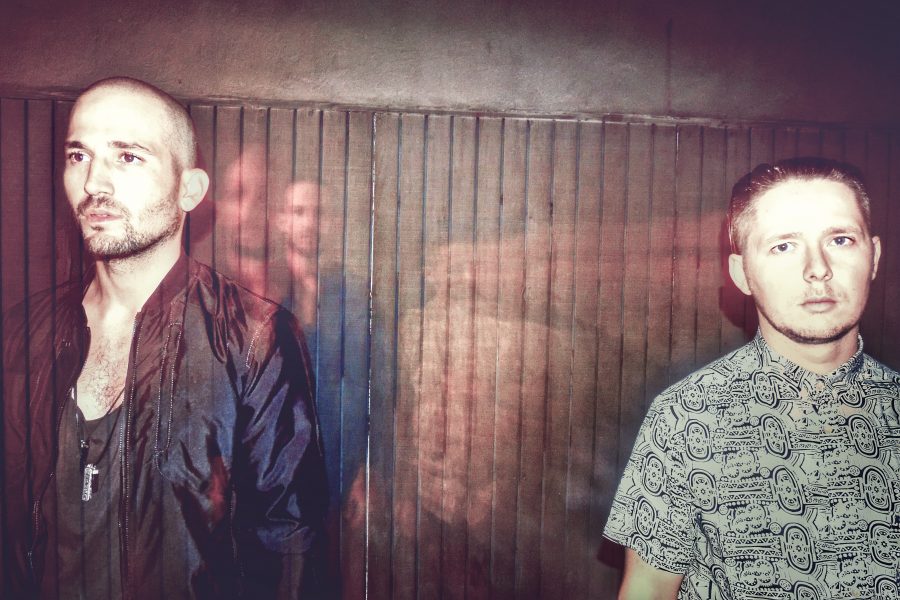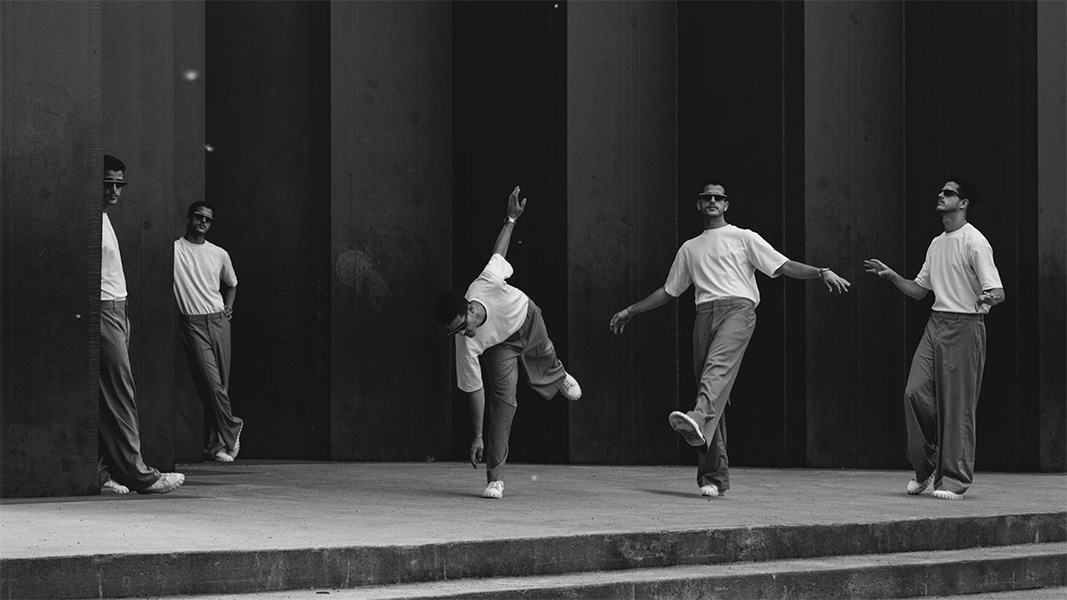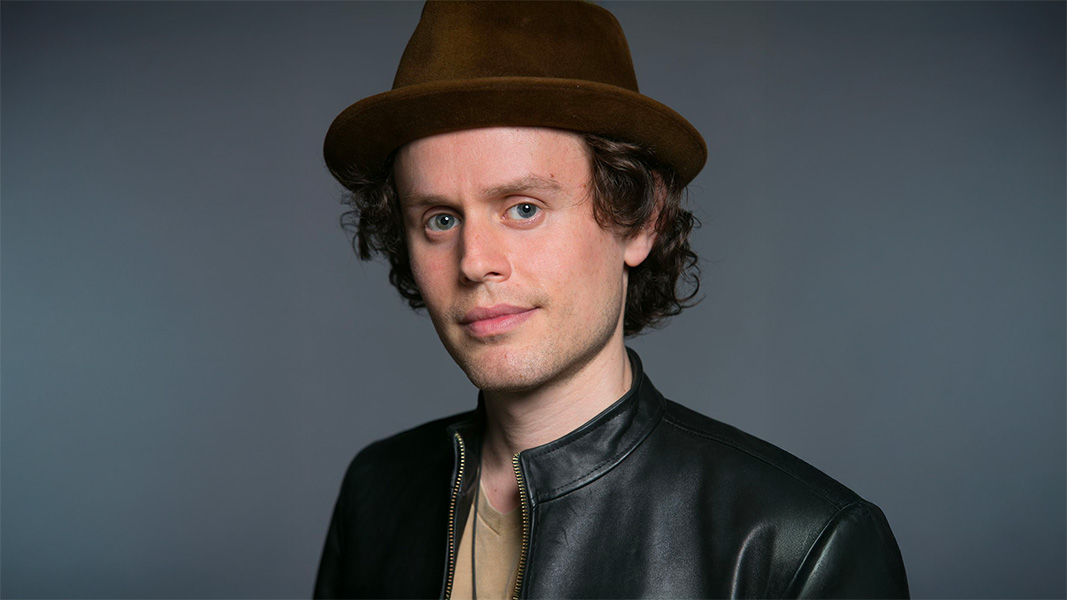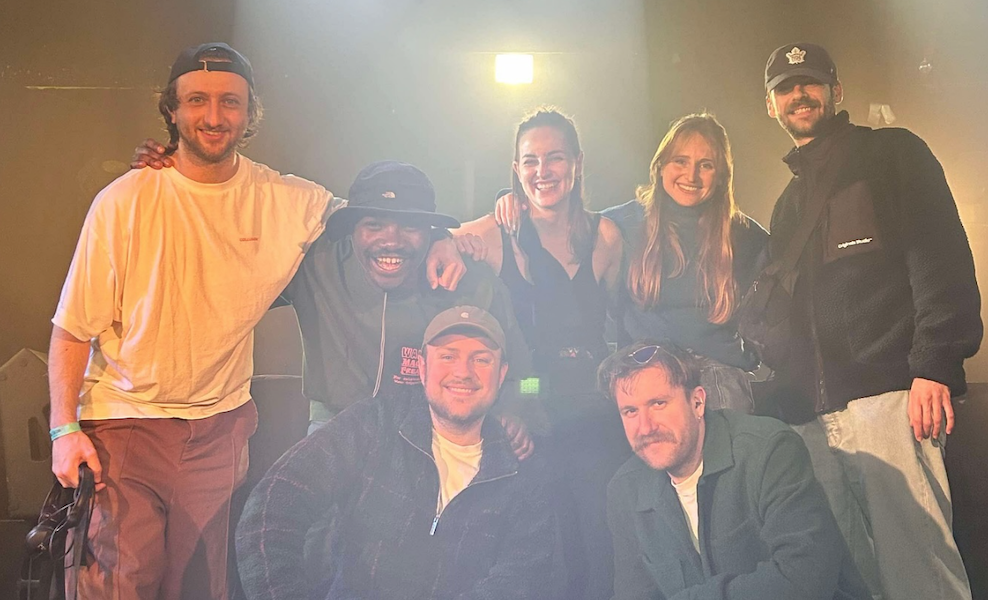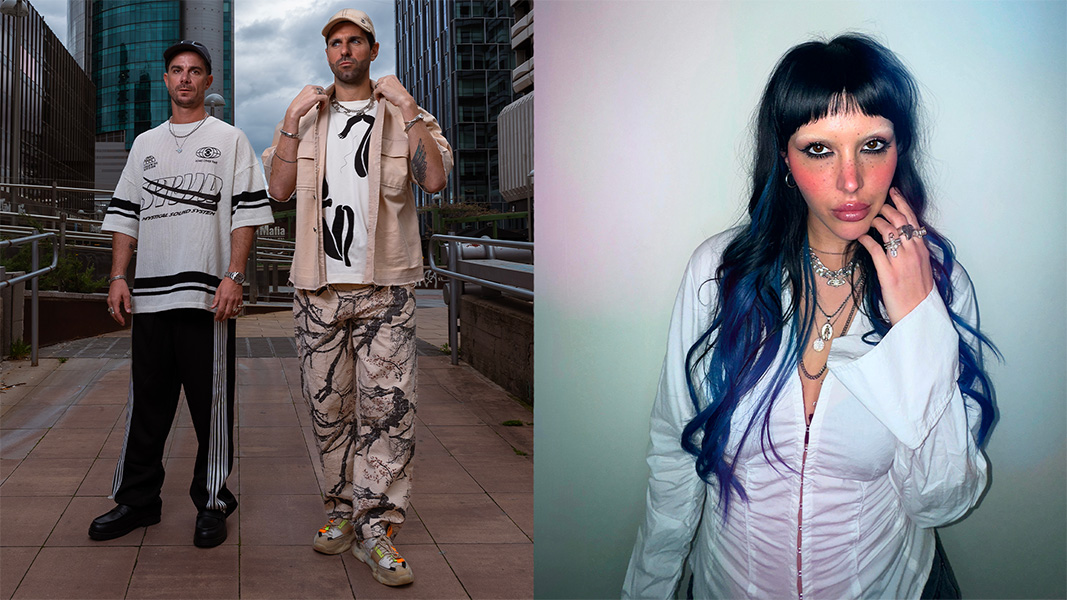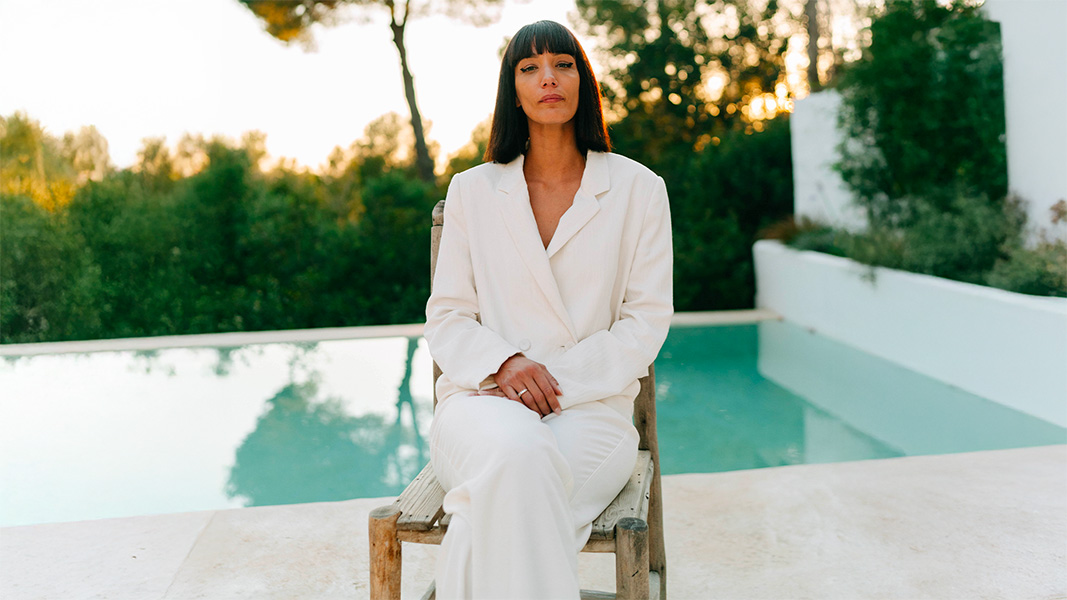microCastle’s second offering of 2019 welcomes Speaking In Tongues to the label for their debut EP. Conceptualized by long time friends Miguel Angel and Philip Anthony, Speaking In Tongues was a project born out of a love for cutting edge electronic music. Originally meeting almost 20 years ago, after Miguel’s move from Colombia to Philip’s hometown of Los Angeles, the two spent a great deal of time together in various capacities, many of these aligned through a joint musical appreciation. Speaking In Tongues is meant to capture and embrace that cohesive fusion and spread it across the airwaves. The duo’s creative vision has seen them land releases on TAU, Atlant Recordings and My Favorite Robot, while their recent remix of Kauf’s ‘Let It Slide’ was aired by Kölsch on BBC Radio One. Now presenting their first EP project of 2019, Speaking In Tongues make their microCastle debut with ‘Sabbath’, alongside remixes from Mathias Schober and Zombies In Miami.
We had the chance to chat with the guys about their production process, their influence and much more. They also talks about their new EP on microcCastle of course. Have a great read !
WWD : Hi Guys, thanks for sitting with us today! Tell us, what does a studio day look like for you?
Hey, thanks for having us! Well, as with most artists I’m sure, a studio day for us varies quite a bit depending where we are with a batch of tunes. We typically have 4-6 prospects going at all time, track wise—some will see the light of day and many won’t (laughs). We’re always in constant communication with one another while in the studio though, staying on the same page and keeping focused on “steering the ship” in the right direction is always a priority for us, as it can be easy to drift and become unproductive otherwise. Our studio is set up at Miguel’s house and we work together from there as much as possible, but all of our sessions are saved in a Dropbox folder allowing us to work individually on tracks, which is huge…we didn’t always have this option available to us in years past. Living in Southern California, we’re lucky to have beautiful desert and mountainous regions close by, so we also like to rent a house or cabin for a few days and bring a couple synths and some gear and lock ourselves up and really get after it. This is a cool process because it removes us from our day-to-day lives and environment and allows us to strictly focus on music. We’ll get up in the morning and make some breakfast, get some pre production done then do something like take the dogs for a hike before hitting the studio for a 12-14 hour session. We’ll be doing this again here in a few weeks out in Joshua Tree, definitely looking forward to see what comes out of the next trip as we feel we’ve hit a good stride in the past year and are currently writing some of our best music.
WWD : What’s been on your to-do list this week?
A lot lol. We tightened up some sessions and bounced out stems for a couple projects: another collab with Santiago Garcia and a new collab EP with Ivory. Really excited about both of those. We wrapped up a new remix for a vocalist and pretty legendary producer that we are quite happy with. We also recorded some synths and arranged a new original. In addition, it was also release week for our new microCastle EP so we had a lot of premieres and actual release day which always a mix of emotions. We’re also doing a lot of organizing and pre-production for a new batch of tunes and planning some photo shoot days.
WWD: Tell us more about your story. How did you discover electronic music and what led you down the path of wanting to be a producer and Dj.
Our earliest memories of electronic music come from a lot of the crossover artists that made it onto the radio in the 90’s here in the States: Prodigy, Chemical Brothers, Crystal Method, Fatboy Slim, Moby and the like. I (Philip) can remember buying a compilation CD in junior high that then introduced more artists like Rabbit in The Moon, Underworld, Propellerheads, BT, Frankie Bones, etc. From there it was the discovery of the So. Cal. rave scene in high school. I spent literally the entire night/morning of the first party I went to at a downtown warehouse standing directly in front of the DJ watching and listening intently and was immediately hooked, knowing it was something I wanted to pursue. Miguel was going to raves around the same time or shortly there after and had similar experiences.
WWD: Starting with the obvious, tell us how you guys met and formed a partnership. And were you both releasing solo previous to meeting?
We’ve known each other for half our lives at this point—we went to the same high school together here in the suburbs of Los Angeles after Miguel’s family moved here from Colombia. Philip and our good friend Andrew were the local DJs, playing house parties every weekend spinning everything from house and progressive to hip hop and jungle. Miguel started coming by Andrew’s on the weekdays when we were hanging out playing records. We immediately bonded over the same passion for cutting edge music, and eventually it was Miguel who took the initiative of taking things to the next level by getting some software to start producing original material. We learned all we could during those days (no Youtube tutorials back then lol) spending countless hours in Miguel’s bedroom writing tunes. A year or two after high school we moved into a house together with Miguel’s cousin and girlfriend (now wife) and spent years cutting our teeth on production, eventually moving out of Reason and into Logic and started collecting some outboard gear. We both have solo material out there and had some good success writing and touring together as a different indie/nu-disco outfit in the mid to late 2000’s…but you’re gonna have to do your own homework if you want to find any of that 😉
WWD: At which club or event did you experience electronic music for the first time and what memories have stuck with you from that moment?
For me (Philip) it was the warehouse party downtown that I mentioned before. I want to say the party was called Slinky, but I honestly can’t remember. It was at a multi-level warehouse spot called La Casa and they had parties there every weekend. Being in high school, it was so fresh and unique from anything I was used to—from the music to the people and the fashion, I immediately felt at home and would go out as much as I could to experience more. Miguel’s first rave was a massive thrown by Insomniac called Audiotistic. Those early days of “massives”, which have now mutated into the commercial festival of today, were a lot of fun because it was our only chance to experience a lot of the global DJs at the time, as we weren’t old enough to go to clubs yet, and Los Angeles in general wasn’t really a destination for electronic music as it is today.
WWD: You have a unique artist name? Is there a story behind it and how did you end up settling on Speaking In Tongues?
Haha, yeah coming up with a name for a project is always a daunting task, but fortunately this one came about rather easily and organic for us. After going our separate ways musically for a few years, we decided in front of the famed Robot Heart bus at Burning Man one early morning sunrise that it was time to link back up. A few months later we got together on a Friday afternoon and calculated our intentions with the project which was pretty simple and pure: to write honest underground dance music that we are genuinely in to and to not be bound or pigeon-holed to any one sound. So, that afternoon, we went into the garage and started grabbing a bunch of old records for inspiration and sampling purposes. The following week when we got together again, Miguel had put all of the records back, except one Talking Heads album that was propped up on a shelf. It was there, just staring us in the face and we both almost simultaneously agreed upon the name. It’s a nod to one of our favorite all-time bands and also has a bit of a deeper meaning as one has to really be both lost in the moment as well as connected to ‘the source’ to “speak in tongues” which is a parallel to the feeling we all receive on those magical nights and mornings on the dance floor.
WWD: A successful partnership is generally based around balance and compromise; how do you manage these things within the Speaking In Tongues dynamic?
We are really lucky in this sense since we both know each other so well both in the studio and in our personal lives that studio conflict isn’t something we really deal with too often. We’ve had our conflicts in the past, but at this point we know we both share a common goal and genuinely trust one another’s decision making.
WWD: Do you have different roles in the production process? And if so elaborate please.
We most certainly do, the best teams are never stacked too heavy in one position and it’s important to play off each other’s strengths. The majority of the time we’ll come into the studio with an idea of the direction we want to go with for a tune that day. We’ll work together on the foundation and groove and the overall blueprint of the track together. Miguel has a proclivity for really nailing down emotion and feeling so he’s often in charge of the synth work in those areas. Philip has a keen sense for attention to detail and handles a lot of the sculpting and engineering work. We both bounce back and forth and try to have fun in the process of writing music together. We’ve both been in toxic studio environments before, with too many cooks in the kitchen per say, so it’s honestly very refreshing working together and splitting up the work to deliver an end product we both feel good about. We also balance each other out in the sense that Miguel is a very feeling/soul-based producer where as Philip’s brain works more in pattern and mathematical terms, so it’s very “yin and yang” completing the whole.
WWD : How has living in Los Angeles shaped your sound and career and who are some up and coming US artists to look out for?
Great question – I guess environment always plays a role in art but it’s hard to say that our sound has any sort of Los Angeles stamp on it as we are primarily influenced by European and South American artists when it comes to dance music. We do try and inject our music with sounds and influences outside of electronic music though, and would say that some of that comes from the early LA psychedelic scene. It’s no secret that the States are pretty far behind Europe speaking strictly in numbers terms when it comes to talented artists who are on the global radar, but that’s not to say there aren’t plenty of up comers on their way. Locally, one artist we’ve had our eye on is Dead-Tones, and we’ve been fans of what the Dance Spirit guys do. Baile out of New York has a diverse range and really nice productions as well. Honestly, and maybe it’s our fault for not being tapped in enough or looking in the right places, but we wish there were more highly-talented producers on the scene here in the U.S. There’s certainly no lack of DJs though lol.
WWD: You have a new EP out on microCastle — ‘Sabbath’ including a remix from Mathias Schober and Zombies In Miami. Tell us a bit about the EP and how it showcases your individualities.
We’re really proud of this record and the way it came out. It definitely showcases our diversity and capability of writing in different styles but also has a sense of cohesiveness front to back. Mood Swing and Sabbath both touch on our love for worldly music, without getting too “shaman” on either of them. Eraser is a modern house tune with a touch of that early psychedelic theme we had mentioned earlier. Coupled with the awesome remixes that Schober and ZIM turned in, there’s certainly a little something for everyone in this package.
WWD: We’re very excited to share the full premiere of the Mathias Schober Remix of the lead track ‘Mood Swing’. Was he someone you had in mind for the track from the beginning? And walk us through the production process on your version.
Yeah, when we were coming up with a short list of remixers with Mitch (from microCastle), Schober was towards, if not at the top of that list, so naturally we were elated when he agreed to do the remix. He’s a real “producer’s producer” and mega-talented in not only his song-writing and arrangement, but his sound selection and mix downs are always second-to-none. We love what he did with the track, especially the complex yet seemingly simple groove he wrote as the backbone. Ace tune, for sure! As far as the original goes, it was the first track we wrote for the record and really started once the modular-esque bass line was figured out. Once we had that going and the big “drum n bass” sounding turnaround, we started adding the rest of the leads and synths. There’s a lot of fine detail in the track as well, lots of percussion and cymbal work as well as some trippy FX.
WWD: Is that a typical process for you or is every track a different journey in terms of the creative process?
Every track is it’s own journey, some have a very direct route to the finish line while others take many twists and turns before getting finalized. That said, a lot of our process remains pretty similar from song to song. We start with an idea or direction in our head, either based off a piece of contemporary music or mood/feeling we want to nail down. We generally try to get the groove and main parts down quick as to not lose the magic or feeling, and from there it’s arranging time and flushing out anything unnecessary. We’ll do a cleanup of the session and start grouping, bussing, adding FX and general mixdown/engineering work.
WWD: What made microcastle the ideal home for this EP?
We had been paying a lot of attention to MC for a while, and were always impressed with the output and overall packages Mitch is able to facilitate. Upercent’s microCastle EP had recently come out when we were writing the record and we were listening to it a lot. So, when the time came to shop the record around Mitch was the first person we reached out to and the rest, as they say, is history.
WWD: You’ve also just released a collaboration with Santiago Garcia on Adana Twins TAU imprint, tell how that came to be and how it ended up on the label.
We first met Santi after he remixed our Passenger track for BOg’s Atlant label. He wasn’t quite on our radar yet previously, but BOg vouched heavily for him and we were certainly impressed with what he did with our tune. We connected and bonded pretty quickly after. We had a lot of the initial parts to Lost In A Jungle sitting around and decided to send them to him to see if he wanted to take a crack at it. Our original tune was a much more straight-forward house groove and probably more light-hearted in nature, which he stripped and turned into something more serious. It’s a really abstract and trippy tune when you break it down, and we love it! I believe Adana Twins hit him up asking for music and we had been sitting on it for quite a few months waiting for the right home, and we were definitely very excited and proud to have it included on such a massive record with so many other amazing artists. It also ended up being our first Beatport top 10 single with this project, maxing out at #7 in the Afro House charts, which was definitely cool.
WWD: How much of an influence does music outside of the electronic spectrum have on you?
A lot, we both listen to a very wide spectrum of music and most of it isn’t dance or club music, to be honest. Probably a standout for both of us is 70s and 80s rock and new wave. Also a lot of Latin-based music as well as some jazz and even outlaw country!
WWD: Most artists go through periods of creative blocks, what do you do to help break through these moments?
It’s important to be aware of your headspace as an artist and never force the creative process. This is why we always have a lot of projects in various stages in the works. The creative process comes in waves such as everything in life, but if we have other tunes to flush out or mix down, there’s always work to be done! And now that we have a few years under our belt with this project we can also always dig back and find an idea that we started that might spark new inspiration.
WWD: What’s the thing most people think they understand about being an artist but don’t? And what are the biggest challenges you currently face as an artist?
Boy, this is tough question haha! I guess the measure of success of an artist can be misunderstood quite frequently, that if you’re not on the top labels and gigging all the time that your value as an artist is somehow less. This is, obviously, not true as there are a plethora of amazing artists out there who are still cranking away at their day jobs and they should be proud of the art they create. No matter how small the audience, if you touch someone’s life even just once, that is truly the miracle of art and not an easy feet. I think where we struggle the most with this project is the social media game. Neither of us have that “look at me” attitude or stance and it can be tough sometimes to thrive in a realm of that sort of ego. Nonetheless, it’s a necessary evil these days, it seems, and we are working on getting better at it.
WWD : What is the one piece of advice you give now that you wished you could have gotten five years ago?
Less is more, use a frequency spectrum analyzer and make sure your drums are in tune!
WWD : Looking back over your discography, which one of your very first tracks still puts a smile on your face when you listen to it now, and why?
We still enjoy a lot of the early work we did for Motek – specifically Billion Years From Nowhere, the Horizon remix and Motion in Colour. They’re all very raw and extremely trippy tunes. When we play outdoor parties out here they are still very much in rotation and absolutely get amazing reactions.
WWD : Current five favorite tracks?
(In no particular order)
Jimi Jules – We Out Here
Thodoris Triantafillou – Scorn (Night Talk Remix)
Isolee – Ginster
Daniel Bortz – Down To The Moon
Tunnelvisions – Imaja’s Drum (Innellea’s Cosmic Consciousness)
WWD : Apart from music, what makes you happiest?
We both have wives who are good friends and Philip has a 15 month-old daughter, so family is certainly an important role in both of our lives. We both read a ton and enjoy just sitting around with a good bottle of wine (or 2…or 3) and talking about the many facets of life and existence. Sounds corny, but we are both extremely inquisitive and analytical and have a passion for breaking things down and trying to understand why things are the way they are. Traveling is something else we both enjoy, whether to other parts of the world or even spending just a weekend in the many beautiful regions of California, we certainly appreciate our home state in its special little corner of this massive rock we’re all flying through space on!
WWD : Cheers for speaking to us today guys !
Big thanks to you guys for having us, cheers!

